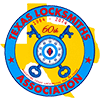Wondering How To Join The Locksmith Profession In Texas?
In Texas, Locksmithing is regulated by the Texas Department of Public Safety, Regulatory Services Division – Private Security Bureau (PSB), so you will need a license to be a locksmith. If you have a criminal background you should check with the State before you proceed much further. There are a few convictions that can be overlooked by the Private Security Board.
Assuming you have a clear background, there are a couple of ways to become a licensed locksmith. The quickest and least expensive way is to find a reputable lock shop that belongs to a trade association like Texas Locksmiths Association and work as an apprentice for a couple of years. The lock shop will register you with the State and get you a locksmith pocket card so you are legal. You can find many good lock shops in the Houston area listed on our Trusted Locksmiths in the Houston Gulf Coast Region page. After two years of consecutive full-time work experience, you may contact the PSB to schedule a Qualified Managers exam. If you pass, you can become the Qualified Manager of your own lock shop.
Your other options for becoming a Texas licensed locksmith is to complete the following:
- Take a 48-hour basic locksmith course
- Attend an approved locksmith trade school (must include a specific curriculum consisting of approximately 600 hours of class time);
- Work for a licensed lock shop for one year full-time.
After you have completed your education and work experience you may contact the PSB to schedule a Qualified Managers exam. If you pass, you can become the Qualified Manager of your own lock shop.
The PSB’s Qualified Managers exam is difficult and will require you to be familiar with the laws that govern our industry. Texas Locksmiths are regulated by the Texas Occupations Code, Chapter 1702 and the Texas Administrative Code, Chapter 35. To own your own lock shop you will have to pass a federal background check, your work experience and/or education will be verified and you will need to maintain general liability insurance.
To maintain your Locksmith license you will also need to complete continuing education units each year. The Texas Administrative Code, Chapter 35.291 – Continuing Education Courses requires Locksmiths to take a total of sixteen (16) hours of continuing education every two (2) years. In the first year, seven (7) hours must be in a subject matter that relates to locksmithing, and one (1) hour must cover ethics. In the second year, eight (8) hours in a subject matter that relates to locksmithing. Following the initial registration period, Qualified Managers may take a one (1) hour course devoted to changes in laws and rules applicable to the security industry, as a substitute for the ethics requirement.
You may not realize how diverse our profession is but we do far more than cut keys and tinker with locks. Here is a list of some of the many things we do:
- Educate consumers about the difference between various lock types, manufacturers and the quality difference between grades of locks
- Properly drill & bore holes in door & frame for lock installation
- Proper fit and alignment of lock installation and make sure nothing binds for a clean finish
- Serve as a physical security consultant by recommending hardware to properly secure whatever a customer requires
- Know the applicable federal, state and local codes that pertain to the hardware being installed
- Cut original and duplicate keys
- Masterkey and re-key locks
- Key impressioning & lock picking
- Install & service locks and keys for furniture, cabinets & office equipment
- Install & service door closers
- Install & service door hinges
- Install & service safes, change combinations, manipulation, etc
- Install & service safe deposit box locks
- Automotive service – unlocking, re-keying, key transponders, etc
- Install commercial fire exit locking devices
- Forensic locksmiths specialize in investigative positions and often help law enforcement officials
– John C. Helweg
